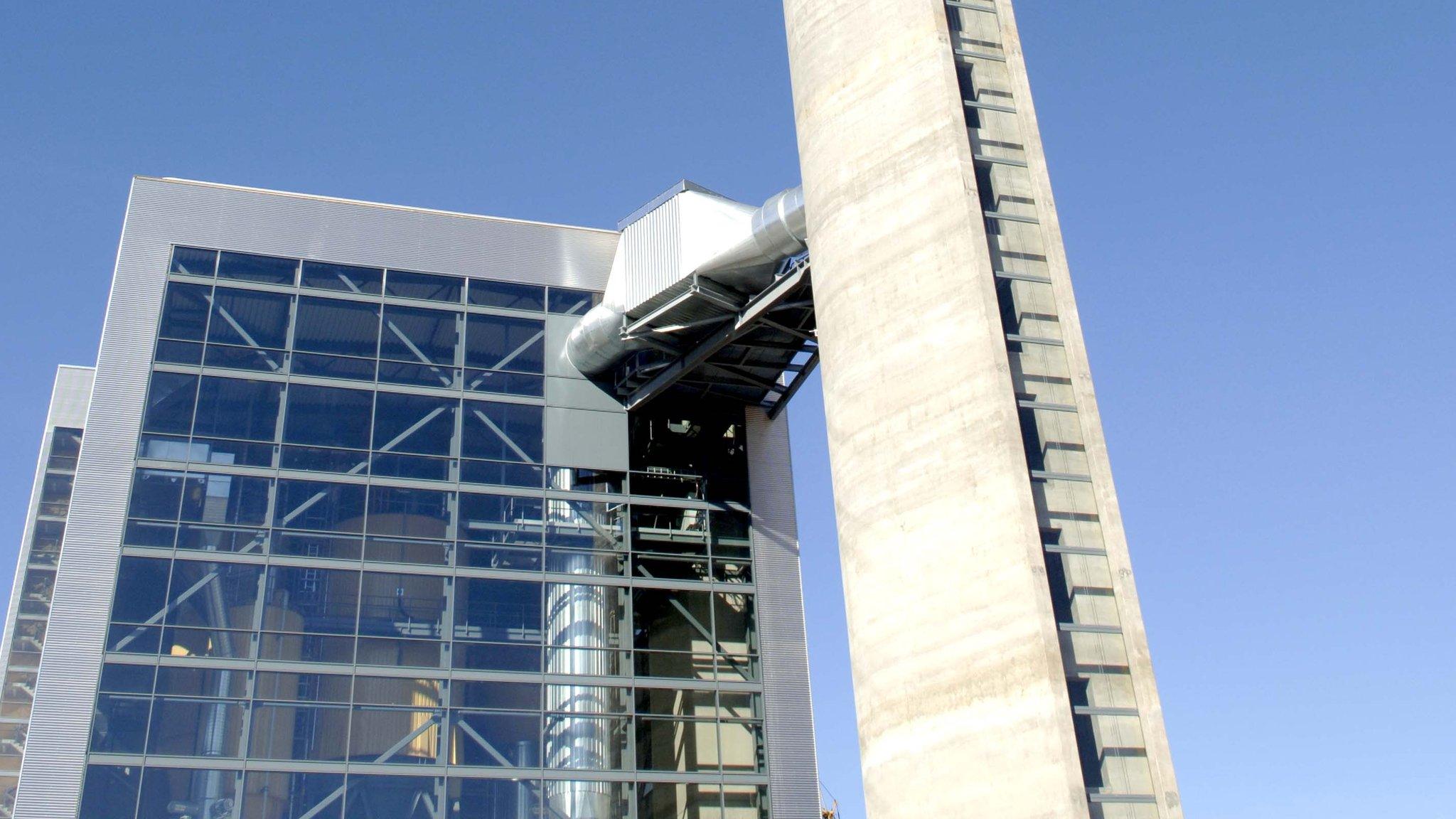Guernsey Waste a 'public service' not a 'business'
- Published
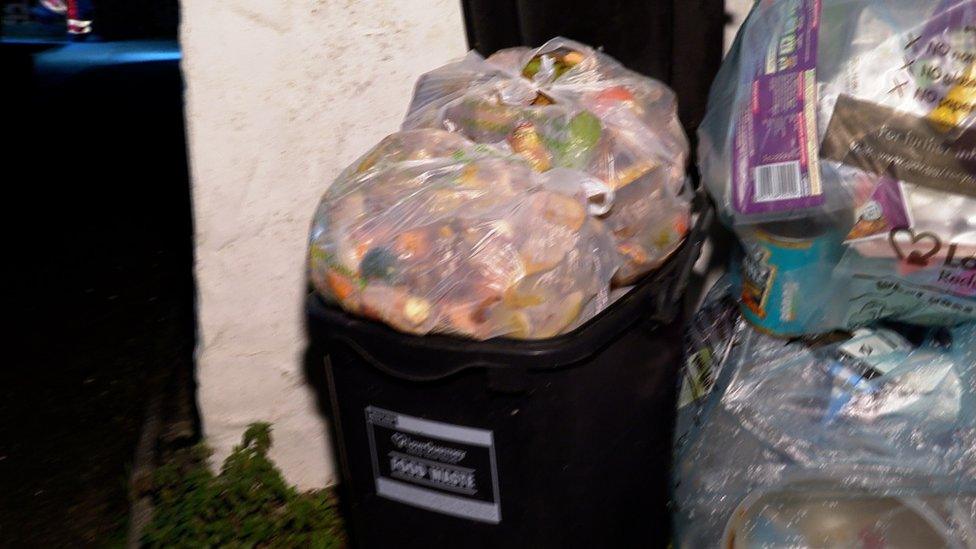
Food, paper and cardboard, cartons, tins, cans and foil can all be picked up by kerbside recycling
Guernsey's treasury lead wants to see the island's waste strategy funded in a way that would stop the price of bin stickers going up.
Currently the waste scheme is funded by a household standing charge and paid-for bin stickers for black bag waste.
Deputy Mark Helyar said Guernsey Waste should not be run as a "business" but rather as a "public service".
The 2022 budget showed rising recycling rates and falling waste amounts meant it would make a loss in 2021 and 2022.
Guernsey Waste is the States-run company that manages the island's waste streams and is supervised by the States Trading Supervisory Board.
Policy and Resources Treasury Lead, Deputy Mark Helyar, would like to see it funded through general taxation.
He said like the island's health service, it should be run as a "public service" and "waste is never going to run as a business".
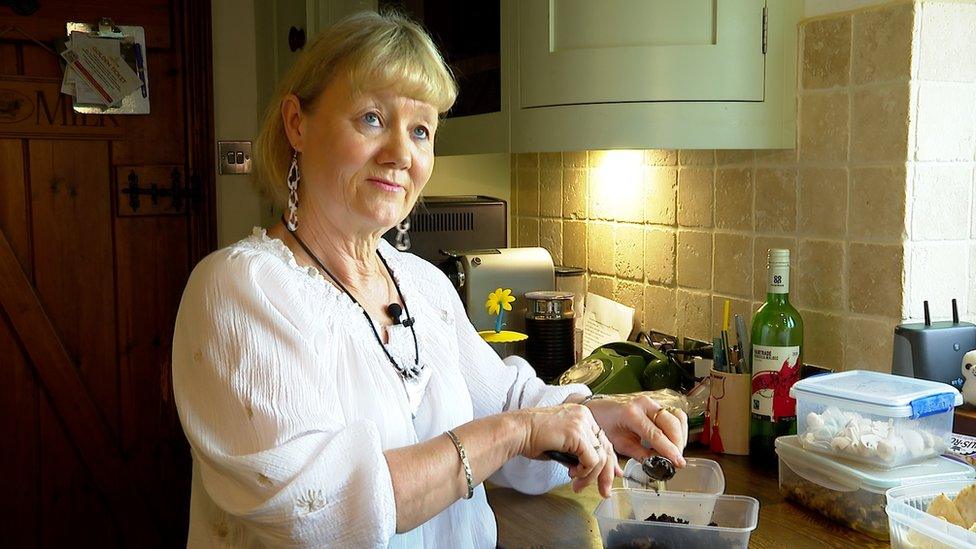
Suzy Rose said she made some rather eclectic meals with leftovers
Deputy Helyar said: "We should celebrate the recycling initiatives which have been incredibly successful, and we don't want to continue to reverse that behaviour by asking people to pay everything for the losses."
The States Trading Supervisory Board is currently reviewing the future of how the waste strategy should be funded.
'Leftover day'
Guernsey's waste strategy has seen families change their behaviour to reduce the amount of waste they produce.
Alexandra Contreras' family of five has a "leftover day" every Friday to make use of the food they do not eat during the week.
Ms Contreras said: "It actually means less work for me, on Friday it means no cooking."
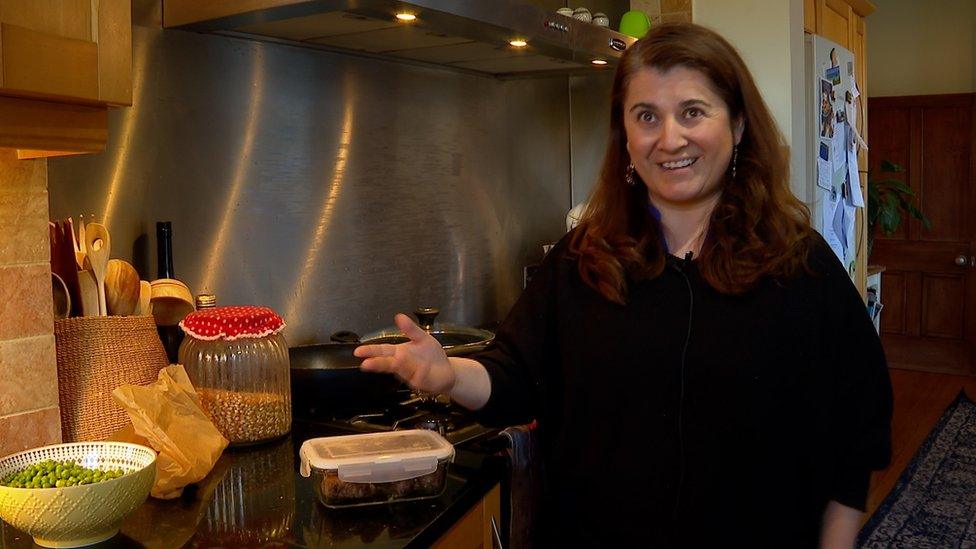
Alexandra Contreras said leftover day meant a day without cooking
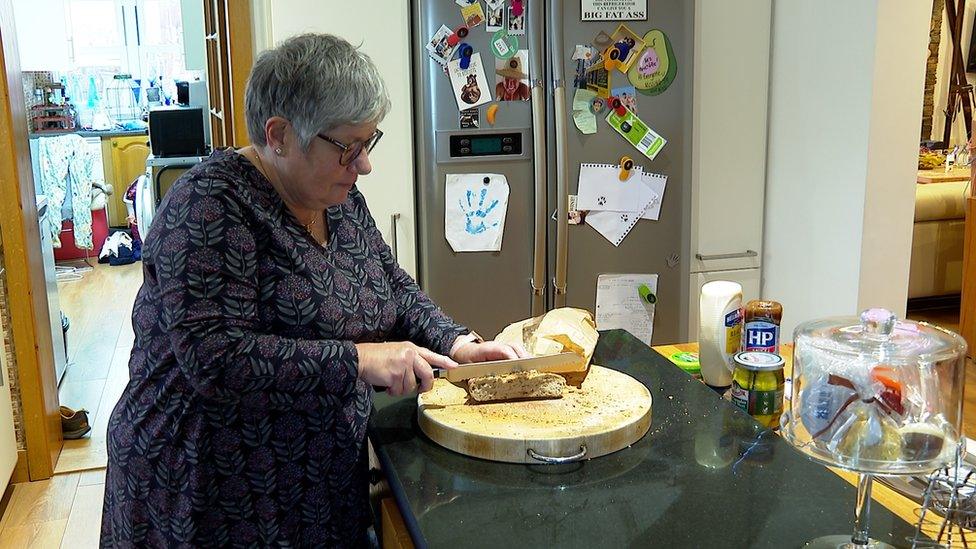
Lynette Petit said she did what she could to avoid buying the bin stickers
Lynette Petit, who lives in the Forest, said paying for bin stickers has dramatically reduced the amount of waste her family produces.
"I hate buying bin stickers. I try to recycle every little bit in the household which we can. The minority of our waste goes in the black bin."
She was proud of the fact she'd gone from throwing out a bag every week, to almost one every month.
Suzy Rose, who lives at Perelle and looks after a few horses and ponies, uses her food waste to feed the horses.
She also makes an effort to recycle coffee pods, by cutting them open and composting the coffee grounds inside.
Mrs Rose said: "We recycle a lot more and we just never have any food waste now that we throw out. What can't be composted goes to the animals."
"I tend to make some rather eclectic meals with our leftovers."

Guernsey's waste system
In 2018 Guernsey's unrecyclable waste began being sent to Sweden, via the UK, to be incinerated and turned into energy
To pay for the strategy and discourage the purchase of unrecyclable waste, stickers were used to pay for black bags, which are sorted by Guernsey Waste
Kerbside recycling has seen the rates for recycling in Guernsey reach 73%
Food waste is sent to a plant in Warminster and turned into energy that powers more than 300 homes

Follow BBC Guernsey on Twitter, external and Facebook, external. Send your story ideas to channel.islands@bbc.co.uk, external.
Related topics
- Published23 August 2021
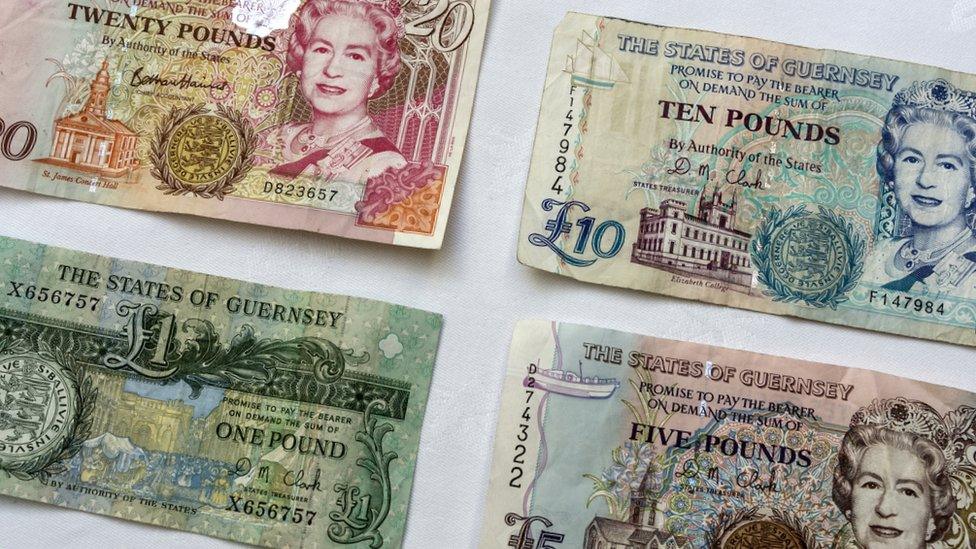
- Published29 October 2021
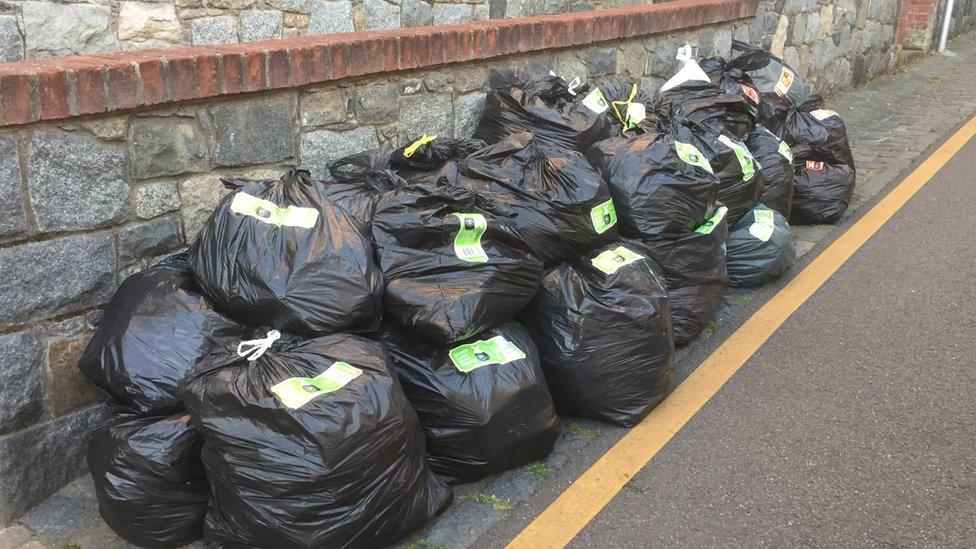
- Published17 December 2020
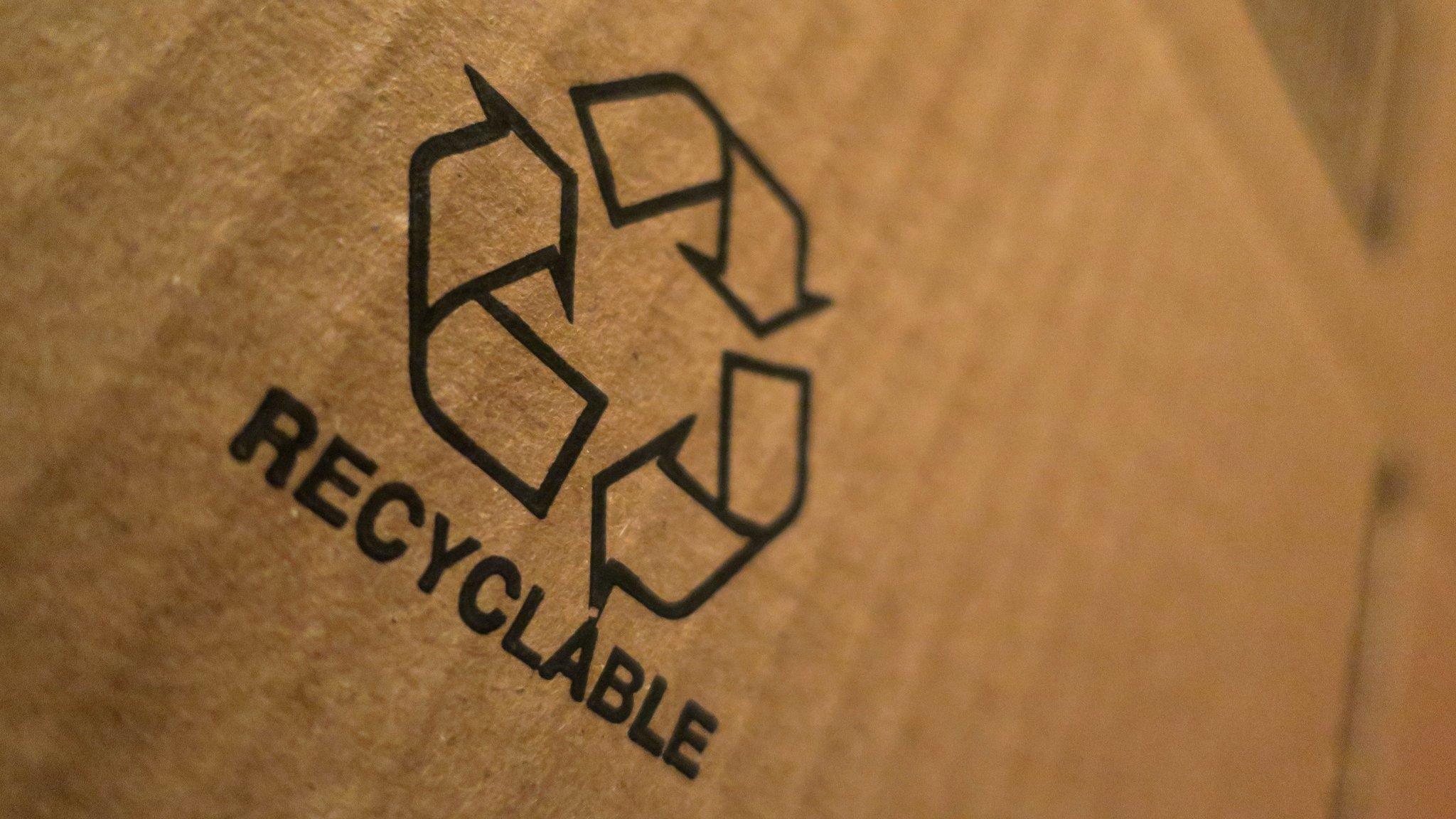
- Published10 November 2020

- Published26 June 2020
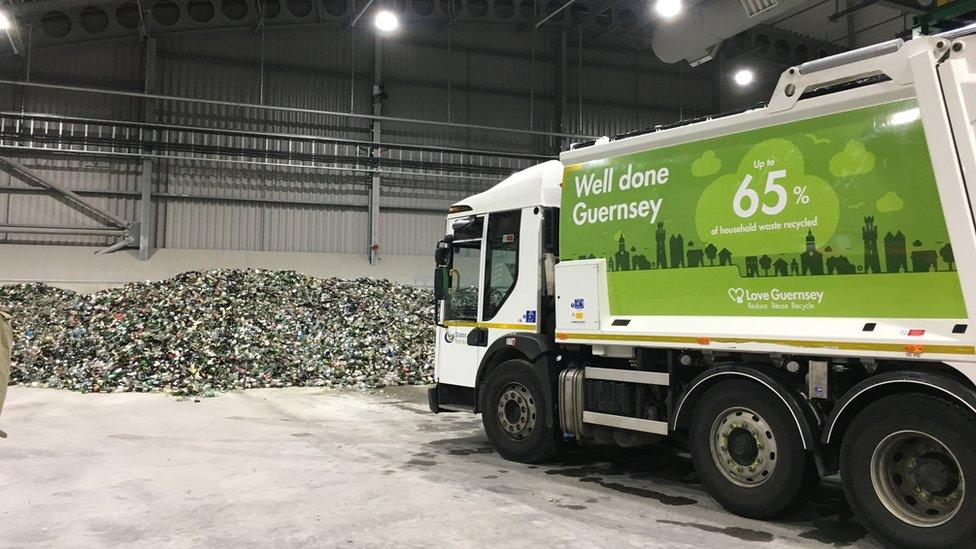
- Published27 August 2018
